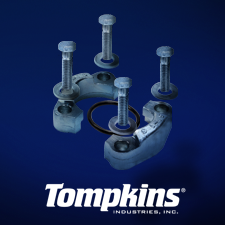The Board's Role in the M&A Process
by M. Jay Heilbrunn, The Distributor Board
 An important question that growing distributors should be asking, but often don't, is how can we incorporate a board of directors or advisors into our strategic planning efforts? It has been indicated that only about 10% of private companies have a formal board that meets on a regular and meaningful basis. Too many business owners miss out on the benefits a board provides.
An important question that growing distributors should be asking, but often don't, is how can we incorporate a board of directors or advisors into our strategic planning efforts? It has been indicated that only about 10% of private companies have a formal board that meets on a regular and meaningful basis. Too many business owners miss out on the benefits a board provides.
There are typically two types of boards: a Fiduciary Board, which is formal, and an Advisor Board, which, as its name implies, provides advice only. For a privately owned distribution company, either will work if they provide guidance, support and objective assessments of the company's direction. Often the difference between a public board and a private company board is the control over management. However, today we find this is changing and even in private boards the directors can have a major influence on the management of the company, usually to the benefit of the owners.
With this as background, this article focuses on the role the board plays in the merger and acquisition process. As a distributor, if you are planning a growth through acquisition strategy, it is highly advised that you formulate a board if you do not have one. The board can play three primary roles:
- Pre-acquisition
- Acquisition Process
- Post acquisition integration
Pre-Acquisition
In the pre-acquisition stage the board should focus on the strategic plan for the company and how any acquired business will fit the plan. In an article by Stout, Risius and Ross, The Role of the Board in Mergers & Acquisitions, they point out:
"It's helpful to think of M & A as one of the ways that a company can execute its business plan and deliver value to its shareholders. Directors play many roles within the organization, but among their principal functions are: Setting strategy; monitoring corporate performance and management; overseeing risk management; counseling the CEO on the most difficult challenges facing the business; championing good governance; offering constructive criticism."
Some of this may sound "too corporate" for a small or mid-size distribution company, however, owners should strongly consider the "best practices" from others to better run their businesses, reduce risk and increase value. A board focused on the acquisition process, along with management, will provide a better basis for decision making because of board member past experiences. At the most recent Foley & Lardner National Directors Institute Executive Exchange panel session, it was pointed out that "great companies have an outside view in and not an inside view out."
Acquisition Process
As the M & A search process unfolds there will be a number of companies that emerge for consideration. The Board and management should consider a number of critical issues jointly. From a Harvard Law School Forum article, Role of the Board in M&A, the following key points are made:
- "... 'Why are we considering this deal? If there are synergies, what hard evidence indicates that they will materialize?'
- Tactical considerations: What processes are now in place to ... close deals, and execute the post-M & A integration?
- Risk: What is the company's current risk profile, and how does it correspond to the company's risk appetite?
- Capital and cost implications: Does our company have the cash on hand, projected cash flow, and/or available credit to commit to this transaction?
- Operations: What changes will need to be made to the current operating structure ... following the merger?
- Talent: As we blend the human resources from the two companies, will we have the right talent to make this merger a success?
- Technology: Is the company's technology infrastructure capable of supporting the planned merger? How will the acquired company's technology be treated post-merger?
- Culture: Will the merger involve a blending of two different cultures? Do we foresee conflicts? If so, what are our plans for resolving them? Will there be a new post-merger culture? How can we ensure that all retained employees thrive in the new environment?
- Monitoring Progress: What are the dashboard components for this deal? What elements will management monitor and how frequently? What dashboard metrics will the board use to measure the transaction's overall success?"
As the deal(s) evolves, the board can be of great benefit in addressing these issues, but also evaluating Letters of Intent and how the associated components will impact the company if the deal is completed. Board members may be very helpful in assessing the potential of the acquired management team and objectively evaluating how they fit with the company.
Post Acquisition Integration
It has been said by many that 70% of acquisitions fail. Why is this? The primary answer is failure to integrate properly. This applies to large, mid-size and small companies. Most often what happens is the deal is done and then everyone goes back to business as usual. However, this is when the work starts. Business as usual will backfire. An integration team needs to be put in place. Often where deals get off the rails is when the integration team, which also has other management responsibilities, gets distracted and does not follow the plan.
Perhaps the most important service a board can provide is right at this juncture. Holding management's feet to the fire to make sure the plan for integration is carefully followed; providing advice and coaching along the way based on board member's experience; providing recommendations for resources to facilitate various necessary processes where management skills are lacking; and to make sure that the metrics for success are in place and continuously monitored.
________________________________________
If you need assistance with your acquisition process or advice on board formation, please contact M. Jay Heilbrunn, a Partner of The distributor Board, at MJay@TheDistributorBoard.com or by Phone 847.579.9185.












